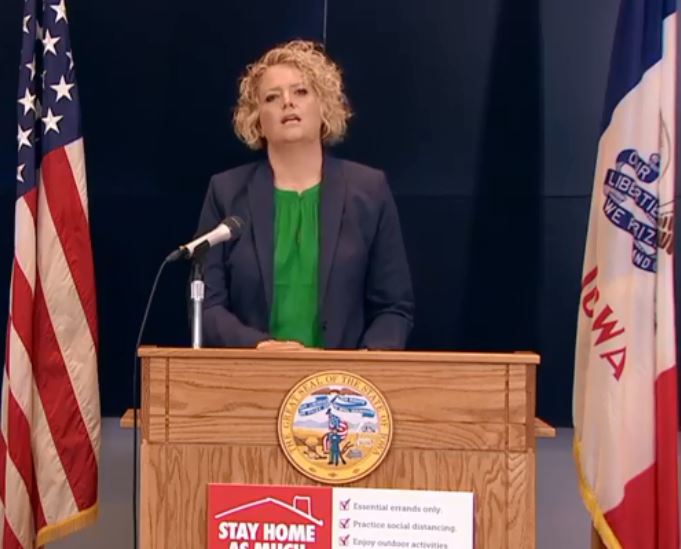The Iowa Department of Public Health issued an order on Friday relating to current and anticipated shortages of personal protective equipment (PPE). The order applies to healthcare providers, hospitals, healthcare facilities, clinics, local public health agencies, medical and response organizations as well as any others that use PPE for the treatment of patients or residents of facilities.
“The order requires these entities to decrease demand for PPE by minimizing patient contacts when possible and maximizing the way barriers and ventilation systems are used,” said Sarah Reisetter, deputy director of IDPH.
There was already a ban on nonessential and dental services that was ordered by Gov. Kim Reynolds. That is also listed in this order as a “reminder.” It requires the canceling of all other elective and nonessential procedures and appointments.
The order also extends to the use of PPE when demand for PPE exceeds supplies. If the facilities are using all the measures that IDPH has mentioned and demand is exceeding supply, then facemasks may be used beyond their shelf life or expiration date. They also do not need to change facemasks for each patient encounter. Washable gowns are to be used, as well as reusable eye protection. The department is also asking to decrease the length of stay for COVID patients if they’re medically stable.
There is also immunity protection provided for those who need to implement the strategies listed in the order.
“We understand the issuance of this order may be unsettling, but due to the global shortage of PPE supply, we’ve determined that now is the time to take this action,” Reisetter said. “Unfortunately, we’re in a position where, like many states and countries across the globe, we are preparing for a time when we might not have enough of these supplies.”
The order, according to Reisetter, is not a reflection of an increase or spike in cases, it is just an acknowledgment that PPE supplies are low globally and in the U.S. It is intended to provide guidance and directives to providers if they cannot get the PPE they normally would use to provide the expected standard of care.












